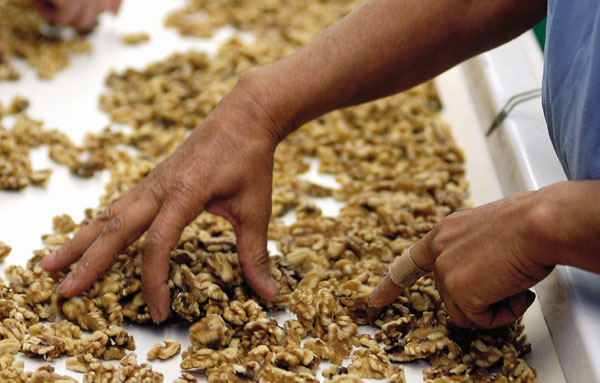To lose weight in a healthy way, embrace fats. That’s right, eating fats does not make you fat. In the last couple of years, research has proven that eating a diet with heart-healthy fats—the fat found in avocados, extra virgin olive oil, coconut oil, canola oil, ground flaxseed and nuts, for instance—is significantly more likely to lead to long-term weight loss compared to a low-fat approach.
Make sure to incorporate heart-healthy fats into your daily food list. Fat takes longer to digest than carbohydrates and helps you feel fuller, which can prevent overeating. Fat also plays a number of key roles in the body, including allowing the body to absorb certain vitamins and nutrients that it otherwise could not by itself.
While it’s paramount to include heart-healthy fats into your daily diet, the same can’t be said for trans fat. Trans fat raises your LDL cholesterol levels (the bad kind) while lowering your HDL levels (the good kind)—a double whammy. According to the Mayo Clinic, a high LDL cholesterol level in combination with a low HDL level increases the risk of heart disease, the leading killer of men and women.
Trans fat is most prevalent in baked goods (most cakes, cookies, crackers and pastries), snacks (some potato chips and popcorn), anything requiring deep frying, refrigerator dough (think canned biscuits or cookie dough) and creamer and margarine.
Any food label that has partially hydrogenated vegetable oil contains some trans fat. While trans fat is a no-no (eat these in very small quantities if you must), saturated fat—with careful moderation—is necessary for optimal health and key to long-term weight loss.
How so? Saturated fat—fat found in red meat, cheese and milk, among other things—gives the body a sense of fullness. Avoiding red meat, milk, cheese and butter all together is simply asking the dieter to fall off the wagon. Once again, the key is eating these foods in careful moderation. In other words, less is more.
When choosing fats, pick heart-healthy fats over saturated fats (but saturated fat in moderation is perfectly fine) and avoid trans fat (very small amounts are acceptable). Contrary to popular belief, you don’t have to deprive yourself of anything to lose weight and keep the pounds off for the long haul.
Just make sure you’re limiting the intake of saturated fat. Portion sizes matter, and if you’re going to indulge on a pastry, soda, pizza, fried chicken, etc., arm yourself with the proper information. Fact: Two slices of pepperoni pizza contain 600 calories and 68 grams of carbohydrates.
To burn off 600 calories, the average adult needs to run at a brisk pace for one hour. If you’re going to indulge every once in a while, do it after a hard, intense workout, when the body is more efficient at metabolizing sugar and carbohydrates. Of course, the single best habit one can incorporate into their diet is a steady dose of crunchy fruits and vegetables. Apples, pears, carrots, asparagus, broccoli, cauliflower, Brussels sprouts and bok choy all provide a wide range of health benefits, but the biggest one has to do with the mind.
Dieters always have a tough time in the first couple of months because of a reduced caloric intake. But the very act of crunching food can trick your body to thinking you’ve eaten more than you really have. You don’t need a complicated plan or a calorie counter app on your smartphone to lose weight.
It’s all about making healthy lifestyle changes. Exercise. Aim for seven hours of sleep a night. Eight is golden. Limit food portion sizes. Except when it comes to those crunchy veggies. They’re so healthy they don’t even have a number on the glycemic index—I’ll go in-depth on the GI scale in a future column.
Once you can change your taste buds from junk food to super foods, you’ve set the foundation for long-term weight loss success. And ditch the soda—diet sodas, too—for water. If you think diet soda is a healthier alternative than regular soda, think again. There’s a growing body of evidence that the artificial sweeteners in diet soda wreaks havoc with the microbes in your gut, which can lead to weight gain and cravings for sweets.
What if you’re like me and millions of others who crave carbonation? Go with carbonated water. You still get the fizz of the carbonation sans the artificial junk, sugar and carbohydrates. The occasional soda or beer is fine, but you’ll be saving some serious pounds off the waistline if water becomes your beverage of choice.










